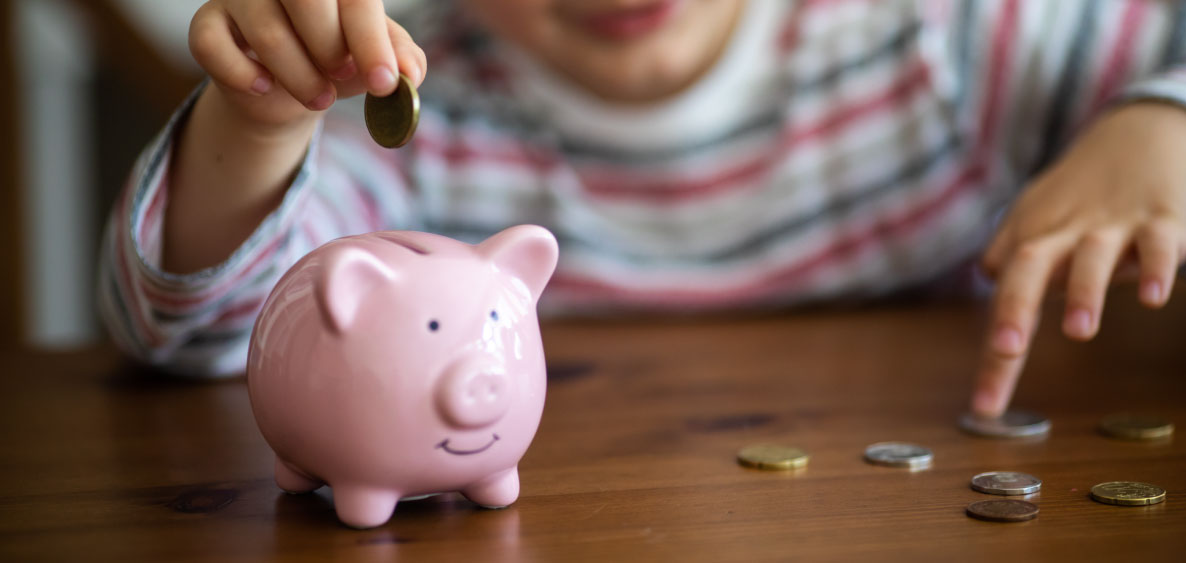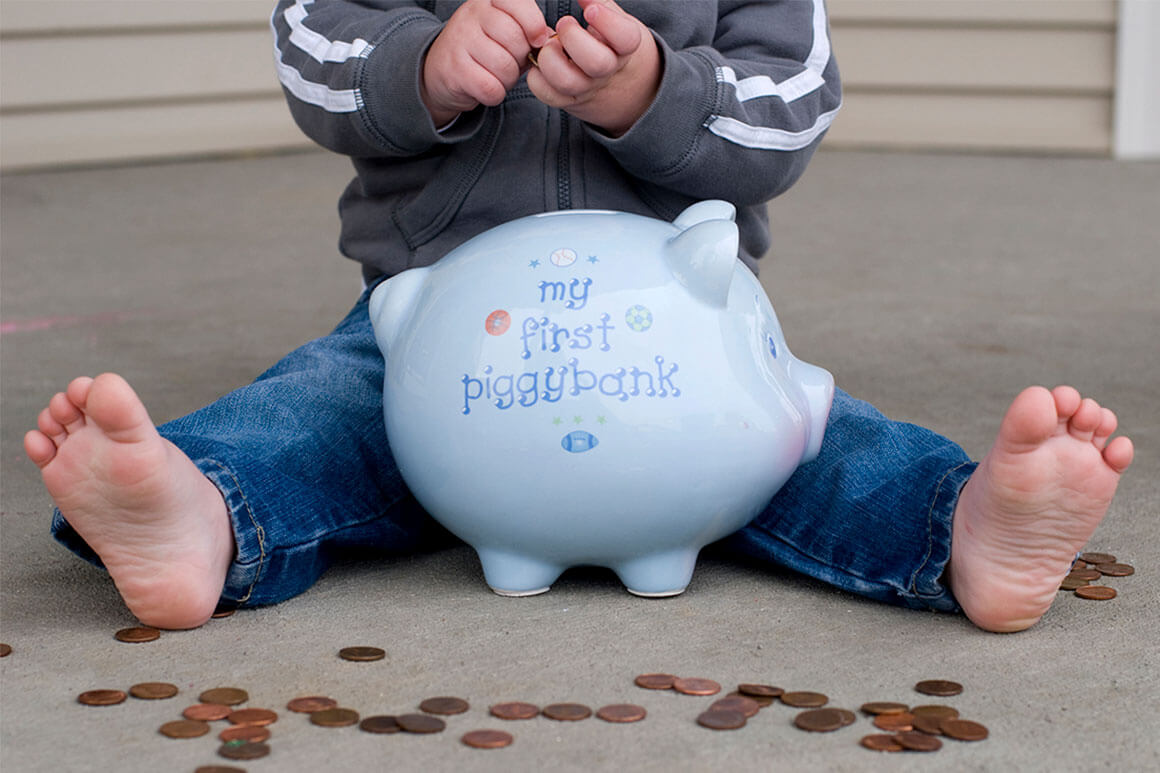
Financial well-being April 3, 2017 By
Each April, the ABA Foundation sponsors "Teach Children to Save Day." Teach Children to Save Day is an annual awareness day when bankers demonstrate their community commitment by teaching young people about the value of saving. Visiting classrooms, youth centers, after-school programs and more, bankers use their real-world knowledge and professional skills to encourage young people to start young, and save more.
American author and advice-giver extraordinaire, Andy Andrews, nails it when he says “The goal is not to raise great kids. It’s to raise kids who become great adults.” Now that is some powerful stuff, but exactly how does it happen? What does it even look like? Where do we start?
As parents, we can see that our kids behave well out of obedience or even fear, but as they grow up and start their own lives, how do we know they will do what is best and make good choices? It begins in childhood.
Using money as an example, we can teach children about responsibility, wisdom, patience, generosity and other life skills that will serve them well as adults. Intentionally teaching children about money when they’re young will set them on the right path.
Financial expert, Dave Ramsey and his daughter, Rachel Cruze offer guidance for parents in their best-selling book, “Smart Money Smart Kids: Raising the Next Generation to Win with Money."
Following are the key points:
- When you teach a child to work, you teach them responsibility. Whether it’s chores around the house or a job at the mall, it all involves follow-through, giving your best efforts, and being held accountable. Work demonstrates cause and effect; it shows that a child’s work and actions will reap rewards or consequences.
- When you teach a child to spend, you teach them to use wisdom. Let’s face it – shopping can be fun, and kids understand this quickly. As parents, it’s important to be a role-model for how to spend money wisely. You can teach kids that spending the money God has entrusted to us should be done with planning and care and knowing the difference between wants versus needs.
- When you teach a child to save, you teach patience. Saving up and waiting for something you want is the key to money, and saving teaches kids to slow down and resist impulsiveness. Kids are growing up in a world and culture of instant gratification, and as we all know, kids aren’t always patient people. That’s no surprise. Saving money shows kids that they can’t always have everything they want right away. Waiting and saving for what we want teaches patience.
- When you teach a child to give, you teach generosity. Generosity is something we learn. Among a toddler’s first words are, “Mine!” Encourage your kids to be generous and then watch their heart change over time as you see them act and give. As Rachel Cruze says, “Generosity is a necessary weapon to fight against selfishness and greed.” Kind adults were once kids who learned generosity.
- When you teach a kid to avoid debt, you teach honesty. In reality, personal debt allows many of us to live a lie because we can buy a bigger home, drive a nicer car, and buy unnecessary things all with the idea of paying for these things later. By avoiding things can’t immediately afford, kids learn to be honest about themselves and what they can truly afford. Honest kids grow up to be honest adults.
- When you teach a child to be content, you teach gratitude. Dave Ramsey said it best, “Contentment comes from the recognition that God owns it all. He created everything we have and all that we are. He cares about it all, too.” When kids grasp this concept, they can be okay with who God made them to be and what God’s given them to manage. Everything else is just a bonus. When your child learns to be content, they will remember to count their blessings. Happy adults practice gratitude.
Raising responsible, successful adults begins at home with families teaching and modeling these vital skills and behaviors to their children. To learn more about the six-week course based on the book “Smart Money Smart Kids,” visit www.smartmoneysmartkids.com for classes held in your area.
It may seem like your small children will never grow up to be an adult, but time slips by right before your eyes. While they are young, think of your life twenty years or so from now, when your kids will have flown the nest and are on their own. What do you hope for them as an adult? Always keep those hopes and dreams alive in your mind as you start working on tomorrow today.




